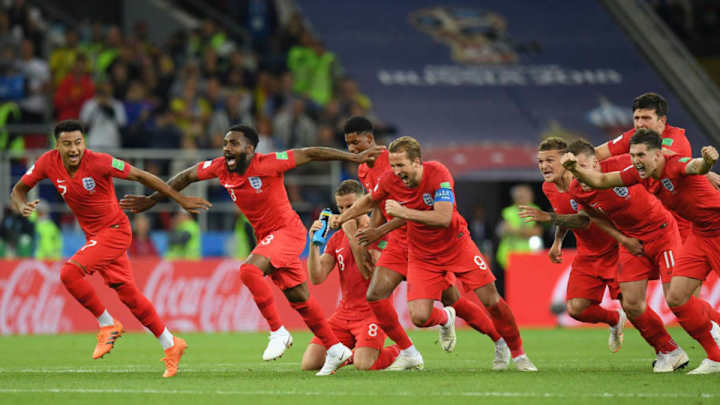England's World Cup Success Demonstrates the Importance of the Loan System to Player Development

The loan system is often criticised by fans for failing to produce high quality players for clubs and international sides. However, several of England's star players this World Cup have benefited from being sent on loan during the early stages of their career.
Harry Kane, England's captain and top scorer during the tournament, spent three years on loan at various clubs in lower divisions. As a teenager at Tottenham, Kane inevitably found it difficult to break into the first team squad.
At such a pivotal time in his career, it was important that he played regular football to help his development. Spurs therefore decided to send the future England captain to a variety of teams including Leyton Orient and Millwall.
England captain Harry Kane sums it all up...https://t.co/UrkZrnLuTp#ENG #ENGCRO #worldcup pic.twitter.com/HuQFpHYpvU
— Match of the Day (@BBCMOTD) July 11, 2018
Some argue that the Under-21 or Under-23 leagues also offer a competitive environment that youth players need in order to develop. However, whilst the youth squads allow players to take part in regular matches, there is not the same intensity to the games.
Being thrust into a struggling side in the lower divisions helps players experience the real pressures they will face if they break into the starting XI of a Premier League or international side.
Playing in front of a full stadium with passionate fans in the stands is an entirely different experience to playing for an Under-23s side on a training pitch in front of a handful of supporters.
To everyone who supported us.
— England (@England) July 11, 2018
To everyone who believed this time was different.
To everyone who wasn't afraid to dream.
To everyone who knows this is only the beginning.
Thank you. We hope we made you proud. #threelions pic.twitter.com/jH8lYMB2E0
However, it is vital that players from academies are loaned to teams in the English game. Chelsea have frequently opted to send their promising players to Vitesse Arnhem, with most of them failing to make an impact. The most successful players who have been loaned out by Chelsea are those who have gone to other teams in England.
Ruben Loftus-Cheek, for example, broke into the World Cup squad following his impressive loan spell with Crystal Palace. Chelsea's decision to send Loftus-Cheek to a fellow Premier League side meant that the midfielder's performances could not be dismissed as they may have been had he played Spain, Italy or France.

Players who have had exceptional seasons on loan in foreign leagues are rarely given the opportunity to show what they can do for the first team. This is largely because of the perceived superiority of the Premier League.
The physical nature and fast pace of the division is different to the way in which the game is played abroad. This means that players on loan to foreign teams may not get many opportunities with their parent club, despite their impressive performances.
By loaning players to teams in the Championship or lower, young players are able to familiarise themselves with the physical nature of the English game against seasoned professionals, instead of their peers.
The recent success of the England youth teams may provide hope for the future of international football, but many of these players will be starved of opportunities. In the Premier League there is a preference for established foreign players instead of promising youth products.

As long as this preference exists academy products will need to be sent on loan in order to create a name for themselves. Thriving on loan will force parent clubs to reassess their player, which could result in greater playing time for the first team.
